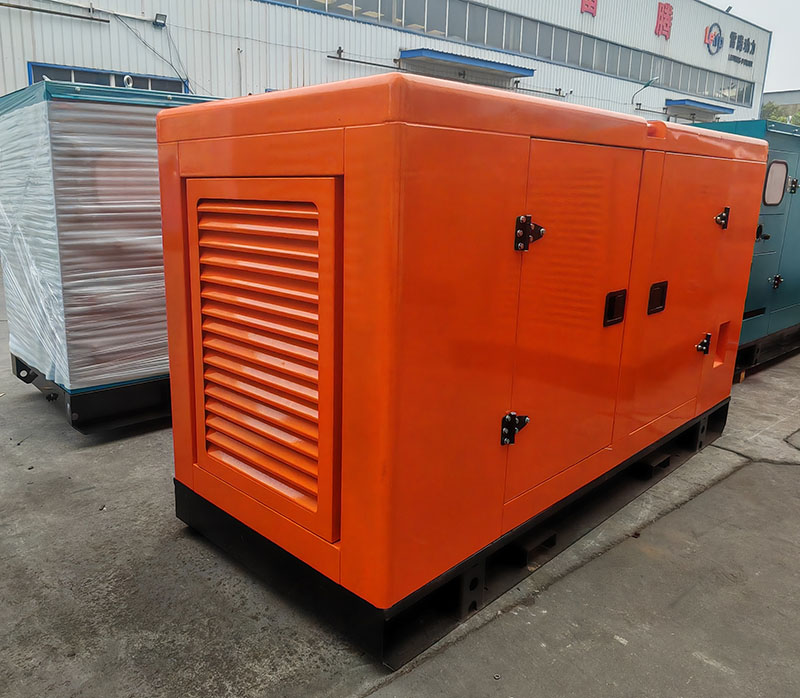Hybrid Power and Renewable Integration: Generator Sets Moving Toward a Green Future
Release time:2025-10-06 Click:18
As the global energy landscape evolves, environmental sustainability and clean energy adoption are no longer optional—they are essential. Hybrid generators, integrating conventional power sources with renewable energy technologies, are becoming a cornerstone of green power solutions. By combining diesel or gas engines with solar, wind, or battery storage systems, these generators reduce carbon emissions, optimize fuel consumption, and deliver reliable electricity for both urban and remote applications.
1. The Rise of Hybrid Generators and Renewable Integration
Traditional generators provide reliable power but rely heavily on fossil fuels, resulting in significant emissions and environmental impact. Hybrid systems address this by integrating renewable energy sources and energy storage to reduce fuel consumption, lower emissions, increase efficiency, enable continuous power in remote areas, and support compliance with international environmental standards.
2. Advantages of Hybrid Generator Systems
Energy Efficiency: Renewable sources reduce dependence on fossil fuels, lowering overall energy costs.
Environmental Benefits: Integration with solar or wind significantly reduces greenhouse gas emissions.
Operational Reliability: Hybrid generators maintain stable output while utilizing renewable energy when available.
Cost Savings: Reduced fuel consumption and maintenance costs provide long-term economic benefits.
Flexibility: Can be adapted for industrial, commercial, residential, and emergency applications.
Smart Control: Advanced controllers optimize energy distribution between generator, battery, and renewable sources.
3. Applications of Hybrid and Renewable Generators
Industrial Facilities: Backup and primary power for factories, plants, and processing lines.
Commercial Buildings: Sustainable power solutions for offices, data centers, and retail spaces.
Residential Communities: Hybrid generators offer reliable energy with reduced environmental footprint.
Remote Locations: Off-grid communities, mines, and construction sites benefit from combined renewable and generator power.
Emergency Response: Hospitals, disaster relief centers, and critical infrastructure rely on hybrid systems for uninterrupted power.
Hybrid Microgrids: Integration with solar panels, wind turbines, and energy storage enhances energy efficiency and reduces reliance on conventional fuel.
4. Key Features of Hybrid Generators
Dual Power Sources: Combines conventional diesel or gas engines with solar, wind, or battery energy.
Smart Energy Management: Controllers distribute load intelligently to maximize efficiency.
Energy Storage Systems: Batteries store excess renewable energy for later use.
Remote Monitoring: Real-time performance tracking and predictive maintenance via IoT platforms.
Emission Reduction Technology: Meets or exceeds international standards for low emissions.
Scalable Design: Modular systems allow expansion for growing energy needs.
5. Frequently Asked Questions (FAQs)
Q: How do hybrid generators reduce fuel consumption?
A: They utilize renewable energy sources when available, reducing the operation time of conventional engines.
Q: Can hybrid generators operate off-grid?
A: Yes, they are ideal for off-grid locations, combining renewable energy and storage with a generator for continuous power.
Q: Are hybrid generators cost-effective?
A: Although initial investment is higher, reduced fuel costs, lower maintenance, and environmental incentives make them economically advantageous.
Q: Can hybrid generators integrate with existing renewable infrastructure?
A: Yes, they can connect to solar arrays, wind turbines, and battery storage systems.
Q: Do hybrid generators provide stable power output?
A: Advanced controllers manage energy distribution to ensure reliable and consistent electricity, even during variable renewable input.
6. Benefits for Users and Communities
Sustainable Energy: Reduces carbon footprint and environmental impact.
Operational Efficiency: Optimized fuel and energy management lowers costs.
Reliability: Continuous power supply even in variable renewable conditions.
Flexibility: Suitable for residential, commercial, industrial, and emergency applications.
Smart Integration: Remote monitoring and intelligent control enhance system performance.
7. Market Trends and Innovations
AI and Predictive Analytics: Use real-time data to optimize hybrid generator performance.
Smart Microgrids: Integration of multiple generators and renewable sources for urban and rural applications.
Battery Storage Improvements: High-capacity, long-life batteries enhance efficiency and reduce reliance on conventional fuel.
Eco-Friendly Certification: Compliance with international environmental standards increases adoption.
Modular Hybrid Systems: Scalable solutions allow gradual integration of renewables and expansion of generator capacity.
8. Challenges and Solutions
Challenge: Higher upfront investment for hybrid and renewable systems.
Solution: Long-term fuel savings, reduced emissions, and operational efficiency offset initial costs.
Challenge: Managing intermittent renewable sources.
Solution: Intelligent energy management systems balance power supply using stored energy and conventional generators.
Challenge: Integrating with legacy generator systems.
Solution: Retrofit modules and smart controllers enable hybrid functionality for existing units.
9. Conclusion
Hybrid generators combined with renewable energy represent the future of sustainable power. By reducing emissions, optimizing fuel consumption, and providing reliable energy across residential, commercial, industrial, and remote applications, these systems pave the way for a green, efficient, and intelligent energy landscape. As renewable integration technologies advance, generator sets are increasingly moving toward a clean, sustainable, and eco-friendly future.
Hot products
+86 15244567972
Contacts:Jack
